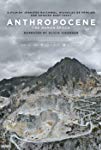Eye For Film >> Movies >> Anthropocene: The Human Epoch (2018) Film Review
Anthropocene: The Human Epoch
Reviewed by: Jennie Kermode

The evidence that our planet is getting warmer is overwhelming. Scientists are almost unanimous in their acknowledgement of it, so why do many other people still not accept that it's real? The answer could be that it's too real - too big, too scary, too overwhelming - so it triggers a kind of cognitive dissonance, a psychological self-defence mechanism that results in inaction. A deer caught in car headlights might feel something similar; a child afraid of monsters in the dark pulls up the covers in a hopeless attempt to hide. Films that hammer into us how awful the situation is might, for people thus affected, be doing exactly the opposite of what's useful. Where are the films that help us get to grips with the scale of the problem and feel that it's worth fighting?
Welcome to Anthropocene. This, as you may be aware, is a term in increasingly common currency within the scientific community, the name for the new epoch in which we live. Beyond the Holocene, this is an age in which the condition of the biosphere is heavily influenced by human actions. Jennifer Baichwal's film sets out to explore it, to make us cognisant of the scale of our own endeavours and - in a sharp break with the established tradition of films on this subject - to show us how our efforts, our technology, our ambition might also drive us to find solutions.

The scale is the thing. "This is the biggest on Earth," says a proud driver, indicating a machine that requires a crew of dozens and is engaged in what is referred to as terraforming yet here on earth - tearing down what nature has wrought and creating flat, smooth land ideal for habitation or industry. Gargantuan, absurdly heavy, this industrial creation might provoke awe like some wonder of the ancient world; it scarcely seems like a product of human imagination and engineering. And yet it's just one tool in the megaprojects the film explores. In one scene, we see the Atacama desert transformed into a alien landscape by pools of lithium being harvested from beneath its surface. In another, a mountain of burning ivory reflects the industrial scale of elephant slaughter driven by the demand for ivory.
But there's more. Inside a workshop, an artisan carves hundreds of tiny, praying figures into the side of a tusk. Somebody will pay a fortune for this work of art, but no elephant died for it. It is, he explains, mammoth ivory. Climate change is causing glaciers to melt. Within them lie the graves of the Pleistocene giants. Their tusks are bigger, provide better material, and are far easier to obtain. He can satisfy his customers without the need to kill.
It might seem like a small thing but it's one of many. Having delivered shock and awe in the first half on the film, Baichwal turns in the second half to projects that are small but growing fast, new approaches to old ways of doing things. There's some really intriguing stuff here, and Baichwal adjusts her shooting style to bring us into close contact with the technologies and people involved. This immediately makes this work feel more human, encouraging us to engage with a vision of the future that revolves around the small, the personal, the finely tuned. The titans we saw earlier, even whilst they function as expressions of the present, begin to recede into the past.
To reach a better future, we have first to imagine it. Anthropocene elucidates our monstrous deeds in a way that is observational rather than condemnatory. It invites us to recognise the magnitude of what we have done and, thereby, to understand what we can do if we take action, if we choose a different fate.
Reviewed on: 26 Jan 2019


















